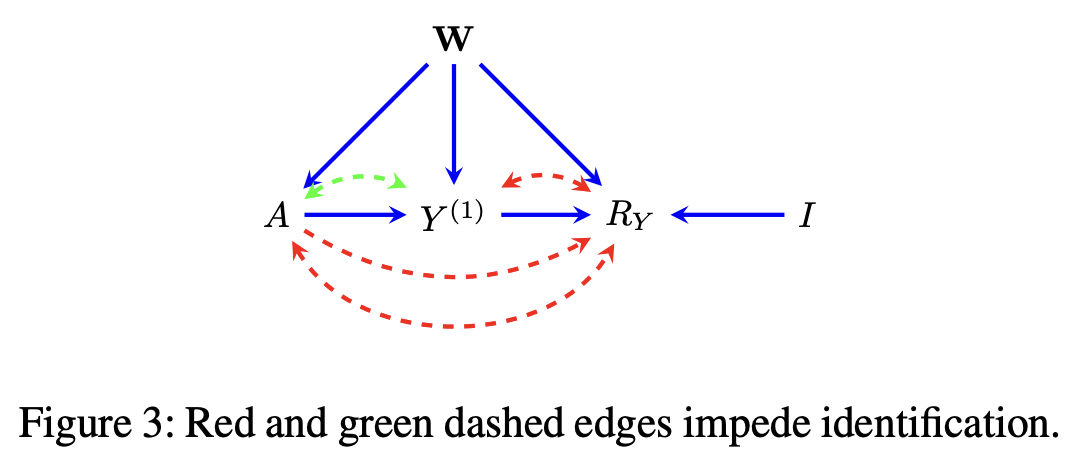Causal Inference With Outcome-Dependent Missingness And Self-Censoring
Conference
65th ISI World Statistics Congress
Format: IPS Abstract - WSC 2025
Keywords: causal inference, missing not at random, missing-data
Session: IPS 806 - Advances in Handling Missing Data for EHR and Causal Inference
Monday 6 October 2 p.m. - 3:40 p.m. (Europe/Amsterdam)
Abstract
We consider missingness in the context of causal inference when the outcome of interest may be missing. If the outcome directly affects its own missingness status, i.e., it is “self-censoring”, this may lead to severely biased causal effect estimates. Miao et al. [2015] proposed the shadow variable method to correct for bias due to self-censoring; however, verifying the required model assumptions can be difficult. Here, we propose a test based on a randomized incentive variable offered to encourage reporting of the outcome that can be used to verify identification assumptions that are sufficient to correct for both self-censoring and confounding bias. Concretely, the test confirms whether a given set of pre-treatment covariates is sufficient to block all backdoor paths between the treatment and outcome as well as all paths between the treatment and missingness indicator after conditioning on the outcome. We show that under these conditions, the causal effect is identified by using the treatment as a shadow variable, and it leads to an intuitive inverse probability weighting estimator that uses a product of the treatment and response weights. We evaluate the efficacy of our test and downstream estimator via simulations.
Figures/Tables
Identification Checks

